Your success depends on being able to take criticism in your life. Hence, it’s best to learn the skill of how to deal with negative criticism with grace and poise. Does destructive criticism affect you to a severe degree, which is why you have always felt the need to have thick skin, but are unable to do so?
Reacting to naysayers without compromising your self-worth.
If you’re someone who grapples with a harsh internal critic, you know how powerful that force can be. The good news is that with a bit of introspection and hard work, it is possible to change that voice, or at least learn to live peacefully with it.
But just as essential as taming your internal voice is protecting yourself from the potential harm of external critics. Being surrounded by those who don’t support you or often put you down can exacerbate your already punishing self-talk.
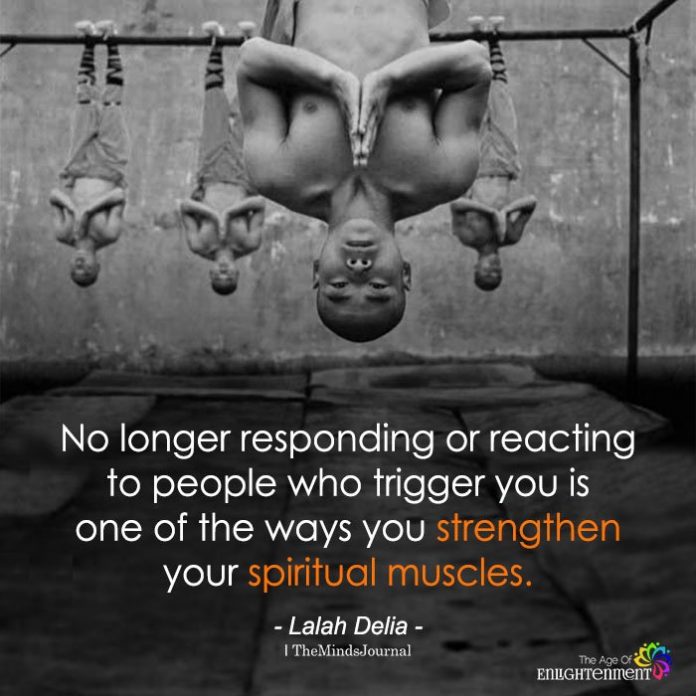
Since there will always be naysayers and backbiters, it’s best to learn to live with them or, as a beloved mentor of mine often says, become like Teflon and let their words bounce off of you.
Following are some ways you can begin to build that Teflon skin and learn to shield yourself from outside forces that threaten to exacerbate negative self-talk and undermine your sense of worth.
1. Sort the constructive from the destructive.
Critics come in many forms. Some are easier to recognize than others, and not all are the egregious sort. Constructive criticism is healthy and, in many situations, necessary. If we don’t know what our weaknesses are, how will we ever grow or change? There is a difference, however, between constructive criticism meant to help (such as from protective loved ones) and unsolicited, negative criticism meant to hurt. Learning to decipher the two is key.
Unfortunately, today’s digital landscape has become an ideal platform for one cohort of critics—Internet trolls. These thorns in the side of humanity are prone to anonymity, likely out of a shameful awareness that their hurtful remarks are simply a reflection of their own lack of self-compassion. And whether your criticism comes from a troll or an acquaintance, keeping this factor in mind is essential.
And then there are the other, less anonymous critics, like those who smile to your face and then tear you down behind your back, or those who undermine you directly under the guise of “constructive criticism” or “just trying to help.” One clue that this is happening is if a comment is preceded by “No offense,” or “Not to rain on your parade, but….” When you hear these words, you can feel sure that your parade is about to be rained on.
Read Psychology Of Mean People And How To Deal With Them
2. Take a break from media—social and otherwise.
Whether it’s a fair-weather friend or the media trying to convince you that you’re not good enough, there will never be a shortage of critics to challenge your sense of worth.
“Low self-worth stems from multiple ecological causes,” says Dr. Anjhula Mya Bais. “A very critical upbringing coupled with a consumerist society that is built on destroying self-worth only to build it back through material goods are factors why individuals feel the way they do.”
It’s not hard to think of examples, from the onslaught of television ads telling us we’re not thin enough, pretty enough, or simply just not enough, to Eurocentric beauty standards represented in all forms of media. Bais suggests making room for open dialogue.
“Unpacking these various levels and discussing and describing them thoughtfully,” she says, “goes some way in beginning to sow the seeds for change.”
3. Be mindful, and notice when an insult is happening.
When someone says something hurtful, we may be so caught off guard that we don’t realize what’s happening until after we’ve had time to reflect, or until a friend (or therapist) points it out to us. The knee-jerk reaction in a moment of criticism or insult is often to believe them and question ourselves, when in fact we should be doing exactly the opposite.
The next time you find yourself questioning yourself based on another’s words, take a moment to breathe, allowing a space between the automatic reaction to take it in as truth.
Which brings us to the next point. . .
Read How to Stay Positive around Negative People
4. Consider the source.
The next time you feel the sting of a negative remark, remind yourself to consider the source. Brene Brown, in her book Daring Greatly, tackles this very issue when she references Theodore Roosevelt’s famous speech, “The Man in the Arena”:
It is not the critic who counts; not the man who points out how the strong man stumbles, or where the doer of deeds could have done them better.
The credit belongs to the man who is actually in the arena, whose face is marred by dust and sweat and blood; who strives valiantly; who errs, who comes short again and again, because there is no effort without error and shortcoming; but who does actually strive to do the deeds; who knows great enthusiasms, the great devotions; who spends himself in a worthy cause; who at the best knows, in the end, the triumph of high achievement, and who at the worst, if he fails, at least fails while daring greatly, so that his place shall never be with those cold and timid souls who neither know victory nor defeat.
In other words, has your critic earned the right to offer you criticism? Is this someone you admire or even respect?
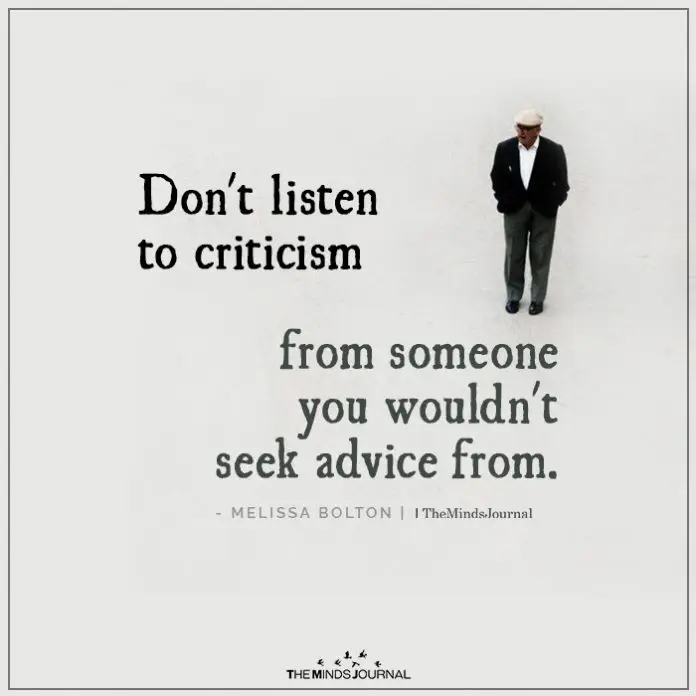
5. Thank them.
Perhaps it may help to think of your detractors as little helpers or teachers, there to keep your ego in check. The next time you come across one, thank them and say, “I hear you. But I’m good. Thank you for your concern.” Or, to quote one wise teacher of mine, “Kiss them on the lips!” In other words, those who appear to throw us our greatest challenges can, in fact, be our greatest teachers.
6. Accept it.
As sure as there will always be death and taxes, there will always be naysayers in your life. Accepting this as a fact of life is your safest option, as is recognizing that regardless of how much energy you exert in efforts to elicit support from those around you, some are simply incapable of offering that support. Trying to please all people all of the time is a surefire setup for disappointment.
We are all on separate journeys. We just need to stay in our own lanes. Trust in yourself, trust that you are doing the best you can, and never let another’s lack of security steal your own.
Written By Allison Abrams
Originally Appeared In Huffpost
Criticism is sometimes good for you, especially if it drives you to be a better version of yourself. But what is not good is criticism that hurts your soul and mental peace; destructive criticism is strictly a no-no. So, the next time someone tries to put you down just for the fun of it, let them know that you won’t take their toxicity anymore.
If you want to know more about how you can protect yourself from destructive criticism, then check this video out below:
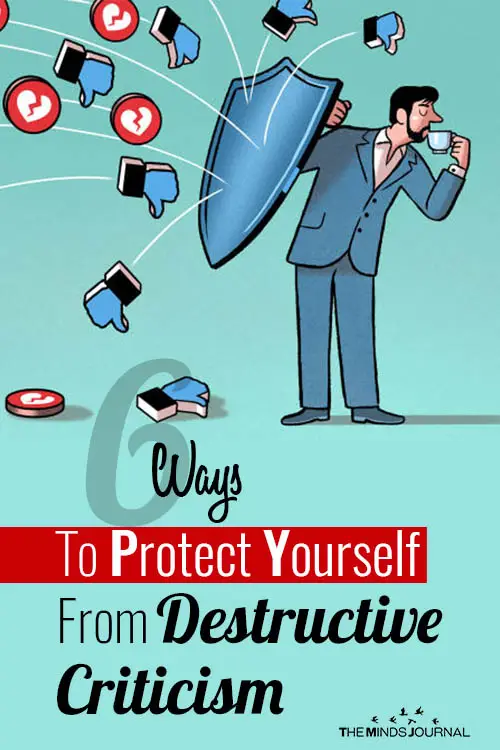
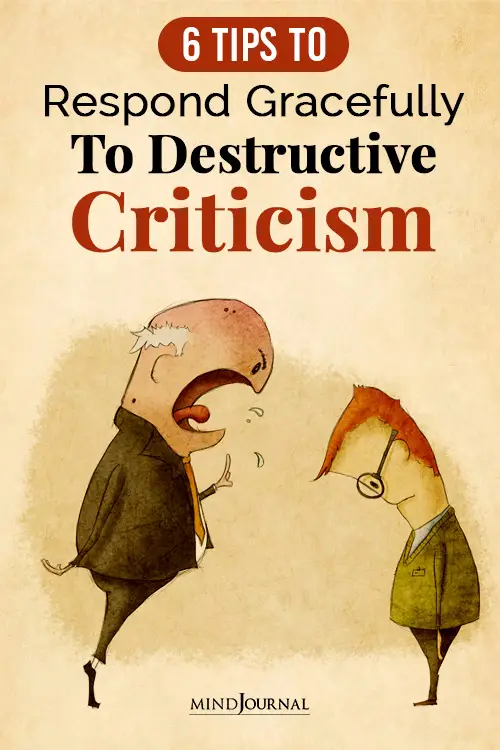
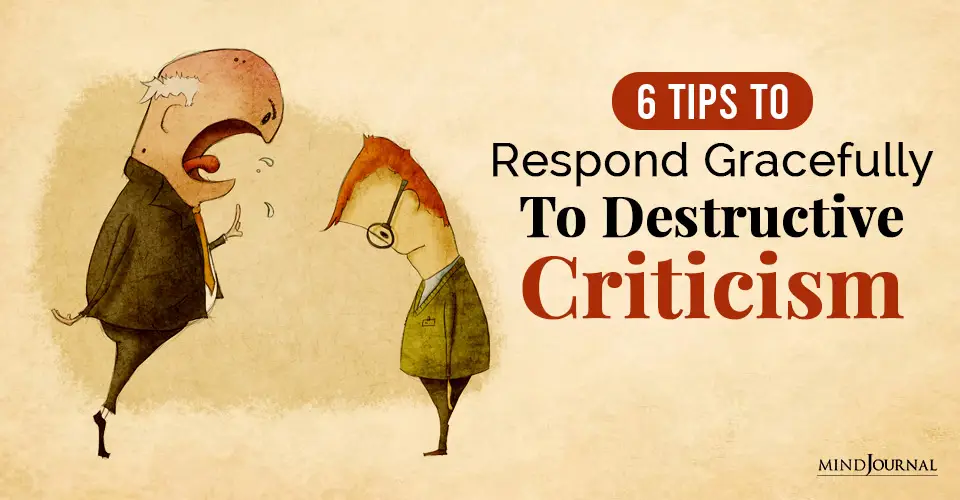







Leave a Reply
You must be logged in to post a comment.